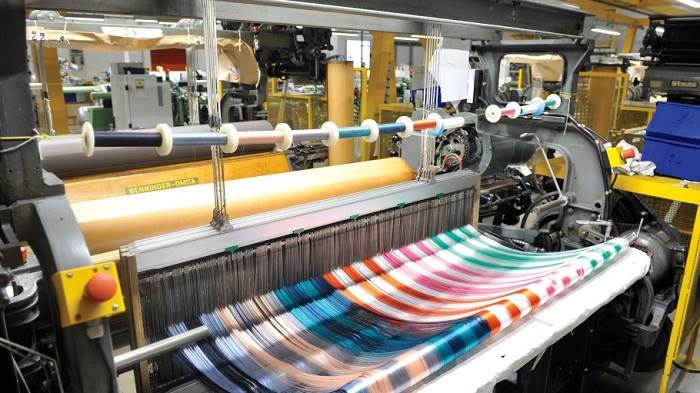Linear alkylbenzene sulfonic acid, also known as Labsa, is a chemical compound with different applications in various industries. In the textile industry Labsa, due to its unique properties, has numerous applications. In this article, we discuss about uses of Labsa in the textile industry.
ArChem provides LABSA and other raw chemical materials such as sodium nitrate, Soda Ash, and Ammonium Chloride for various industrial applications. Additionally, ArChem provides customers with other chemical products including Nitrocellulose, Nitrocellulose solution, organic solvents, etc. For further information please contact our technical sales team in ArChem.
What is LABSA?
Linear alkylbenzene sulfonic acid (Labsa) is a chemical compound with molecules characterized by a hydrophobic and a hydrophilic group. Some advantages of using Labsa in different industries include:
- Good performance
- Biodegradable and environment-friendly
- Low cost
What is the textile industry?

The textile industry is based on the conversion of fiber into yarn, then yarn into fabric. These fabrics are dyed, printed, or fabricated into clothes and other items. Different types of fibers are used to produce yarn, with cotton remaining the most important natural fiber.
The textile industry involves sections like production, processing, manufacture, and distribution of fabrics. It consists of manufacturers of fabric and yarn, suppliers of raw materials, and the chemical industry that produces artificial synthetic fabrics.
Labsa uses in the textile industry
Labsa is used in textile dyeing and printing processes. It acts as a surfactant and helps in the dispersion of dyes. Plus, Labsa facilitates the absorption of dyes onto textile fibers. The addition of Labsa improves the wetting characteristics of the fabric. Labsa also makes dyed fabric more resistant during washing or exposure to sunlight. Some uses of Labsa in the textile industry are described below:
Washing and textile pre-treatment
In textile processing, Labsa is used as a detergent and wetting agent during the pre-treatment and washing stages. It helps in removing impurities, such as oils and dirt from the fabric surface. Labsa excellent emulsifying properties lead to the dispersing and suspending of these impurities. Plus, Labsa aids in the removal of other chemicals used in textile manufacturing processes, preparing the fabric for subsequent treatments.
Fabric softening processes
Labsa plays a vital role in fabric softening processes. due to its ability to reduce the surface tension of water, it is utilized as a key ingredient in fabric softeners.
Emulsification and stain removal
Labsa’s emulsifying properties make it an effective ingredient in stain removal products used in the textile industry. It breaks down and disperses different types of stains, such as oil and ink from fabric surfaces.
Textile machinery cleaning
Maintaining the cleanliness of textile machinery is very important for optimal performance. Labsa, due to its excellent degreasing and emulsifying properties, is utilized as a cleaning agent for textile equipment. It effectively removes oil and other contaminants from machinery parts, ensuring efficient operation.
Environmental Impact
Labsa’s usage in the textile industry offers environmental benefits. It is biodegradable, meaning it can be broken down by natural processes, reducing its impact on the ecosystem. Plus, Labsa effectiveness in cleaning processes leads to less water consumption and shorter washing cycles.
Other uses of LABSA
Apart from the textile industry, LABSA is used in the formulation of washing powder, liquid soap, etc. Other uses of LABSA in various industries include:
- Laundry powders
- Dishwashing liquids
- Liquid soap
FAQ
What is LABSA?
LABSA is one of the main ingredients in the manufacturing of detergent and cleaning powders, liquid and oil soaps, and a variety of anionic speciality formulations.
What are the other names of LABSA?
Linear alkyl benzene sulfonic acid (LABSA) is also known as Dodecylbenzene Sulfonic Acid, LAS, and n-Dodecylbenzene Sulfonic Acid.
What are the uses of Labsa in the textile industry?
Labsa is used in textile dyeing and printing processes. It acts as a surfactant and helps in the dispersion of dyes. Plus, Labsa facilitates the absorption of dyes onto textile fibers.
